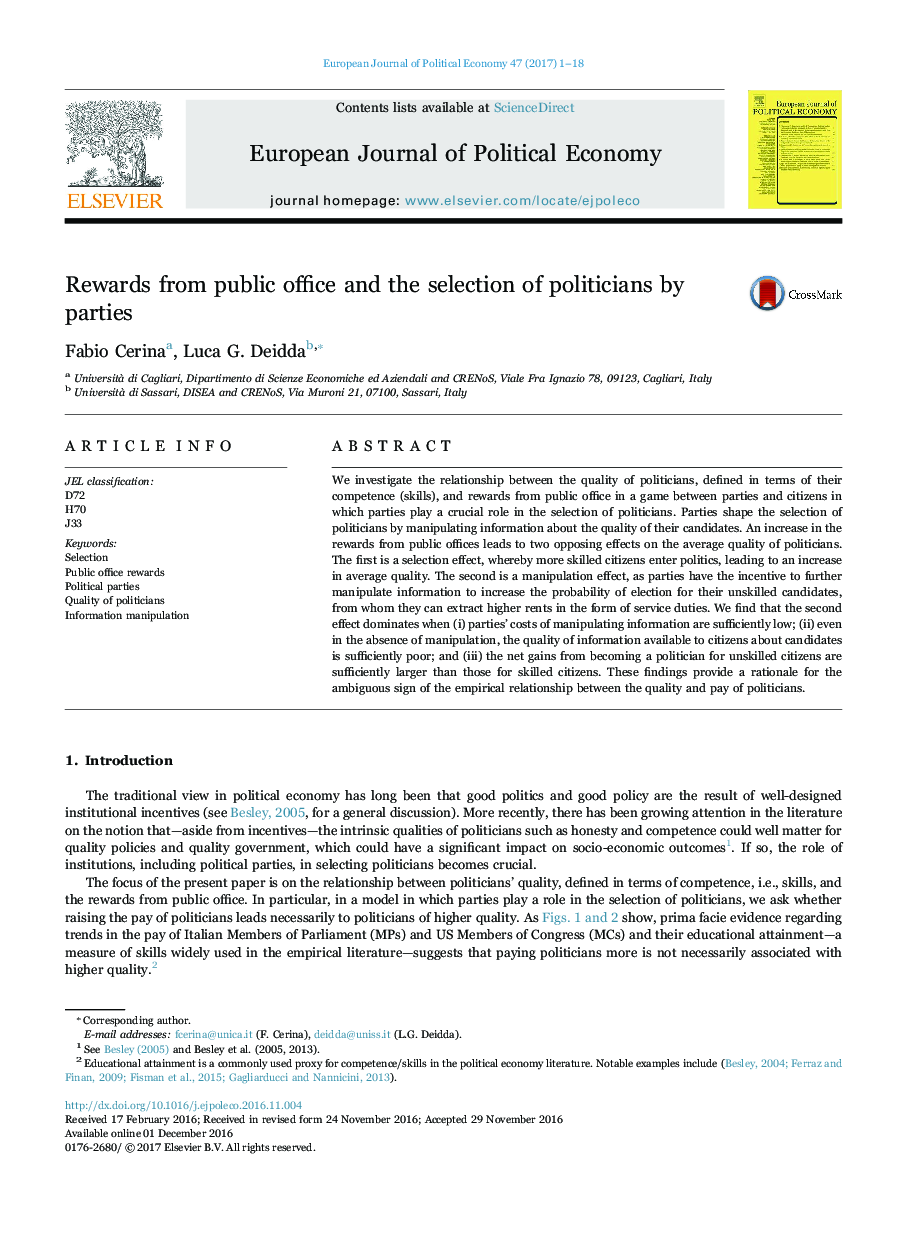| Article ID | Journal | Published Year | Pages | File Type |
|---|---|---|---|---|
| 5067797 | European Journal of Political Economy | 2017 | 18 Pages |
â¢Empirical association between pay and quality of politicians is ambiguous. Why?â¢A higher pay provides incentives to skilled citizens to enter politics.â¢Parties might prefer unskilled politicians from whom they can extract higher service duties.â¢Parties might manipulate information to select unskilled politicians.â¢In unaware/captured societies pay and quality of politicians tend to be negatively associated.
We investigate the relationship between the quality of politicians, defined in terms of their competence (skills), and rewards from public office in a game between parties and citizens in which parties play a crucial role in the selection of politicians. Parties shape the selection of politicians by manipulating information about the quality of their candidates. An increase in the rewards from public offices leads to two opposing effects on the average quality of politicians. The first is a selection effect, whereby more skilled citizens enter politics, leading to an increase in average quality. The second is a manipulation effect, as parties have the incentive to further manipulate information to increase the probability of election for their unskilled candidates, from whom they can extract higher rents in the form of service duties. We find that the second effect dominates when (i) parties' costs of manipulating information are sufficiently low; (ii) even in the absence of manipulation, the quality of information available to citizens about candidates is sufficiently poor; and (iii) the net gains from becoming a politician for unskilled citizens are sufficiently larger than those for skilled citizens. These findings provide a rationale for the ambiguous sign of the empirical relationship between the quality and pay of politicians.
